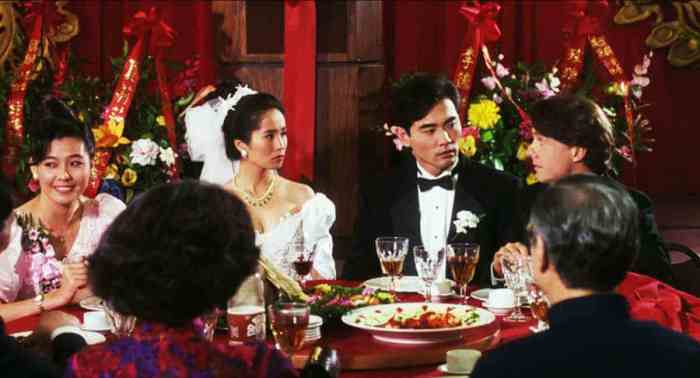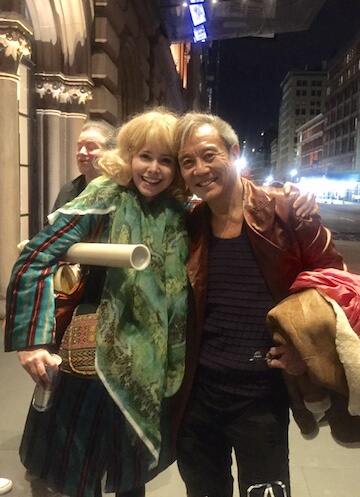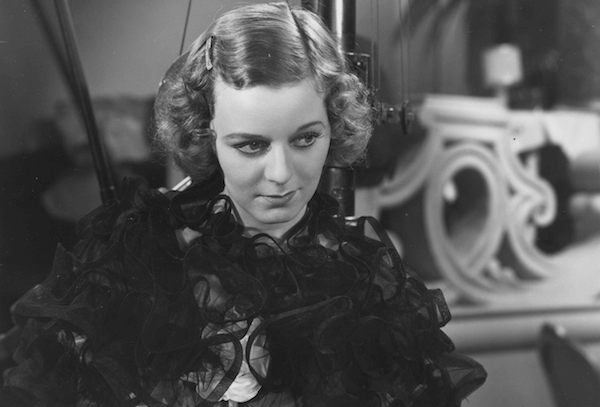BY DAVID NOH | Living for years on the Upper West Side where she was born is a woman who is something of a living legend. Lee Grant’s life has encompassed so incredibly many facets, spanning her own New York Jewish roots, a debut with the Metropolitan Opera at the age of four, and a segue from dancing to acting that took her to the Broadway hit “The Detective Story.” She made the film version of it with William Wyler in 1951, and her film debut won her an Oscar nomination and the Best Actress Award at Cannes.
During the same period, she found herself called to testify against her then-husband, Arnold Manoff, for being a Communist by the House Un-American Activities Committee (HUAC). She refused, and this, combined with her eulogy for actor J. Edward Bromberg in which she accused HUAC of causing his early death, resulted in her being professionally blacklisted and unable to work in film for 12 years.
She continued to find work in the theater while battling the blacklist, and survived it to appear in the insanely popular TV series “Peyton Place” in 1965. A striking appearance in the film “In the Heat of the Night” really re-opened doors for her and she made some of the most striking movies of the 1970s, winning the Best Supporting Actress Oscar for “Shampoo” in 1975.
This brilliant shape-shifter entered a new chapter when she began directing not only feature films but also a series of groundbreaking documentaries that tackled subjects like poverty in America under Reagan (“Down and Out in America”), the longest bank strike in American history (“The Willmar Eight”), legal bias against women in divorce court (“Women on Trial”), women murderers (“When Women Kill”) and the transgender community (“What Sex Am I?,” way back in 1985).
Lee Grant’s lifetime fighting for things she cared about in Hollywood and Washington
Grant has just written her autobiography, “I Said Yes to Everything,” which, unsurprisingly, is absolutely magnificent in its searing truthfulness. A total bucket list dream came true when I got to interview her at length, at the end of which she exclaimed, “You’re my new best friend! I’ve talked with you about things I haven’t talked about with anybody!”
Asked why she finally decided to pen her memoirs, she said, “What started me was the fact I couldn’t remember names, and I think this began when I was in front of HUAC in my 20s. They wanted me to name my husband who was a Communist, and at the time I couldn’t introduce one person to another. I would just go blank and I thought maybe I’m getting Alzheimer’s. Then I forgot my lines onstage in a big hit play [“The Prisoner of Second Avenue”] I was doing with Peter Falk.
“The fear of losing my memory frightened me so much that I sat down to write, to be honest with myself and pull no punches, and that’s how it started. Everything was still there, even recalling at age two and a half how I could smell the air in the Poconos and feel the grass under my feet, and later, had a sense of all these boys I was in love with, and then my husband. It was such a revelation and so reassuring that I couldn’t stop writing and I was at my desk for four and a half years.
“All in longhand, this diary I should have written when I was a kid poured out of me along with plenty of tears and laughs. It was the biggest catharsis I could ever have given myself because not only was my memory back, but it was there in a way I never would have dreamed it could be.”
Lee Grant in Hal Ashby’s 1975 hit film “Shampoo.” | COLUMBIA PICTURES
Few actresses have deserved the Oscar more than Grant for “Shampoo,” an incredible justification after her troubled Hollywood past, and I asked her what inspired her echt Beverly Hills housewife, Felicia: “‘Shampoo’ was extraordinary, as was all of the late ‘60s and ‘70s, when I was lucky enough to be working in a Hollywood which just burst open with great writing, directing, actors. Just astonishing, the work that we were doing then.
“That role was like an exploration with a husband who didn’t want me, Jack Warden. I could explore the kind of drive that a Beverly Hills woman would have, living at home with a gorgeous teenage daughter, Carrie Fisher, who didn’t like her, and a husband who was having constant affairs with other people, particularly this gorgeous Julie Christie. Felicia had a hunger for approbation, love, sex, and pleasure and was not getting it any place but from her hairdresser, who was, fortunately for her, Warren Beatty. So that kind of need I could crack into at any time in my life where my rage at the people around me was transferred to this experience that would take me out of my life and myself. That was not hard for me to find.”
The scene where Felicia walks in on her daughter and hairdresser right after they’ve had sex remains unmatched for sheer audacity.
“Warren told me that Felicia wouldn’t have known they’d been having sex, and I said, ‘What do you mean?’ ‘I know that about women.’ And that’s when I quit the movie and when he asked me why, I said, ‘You’re my hairdresser. Who are you to tell me what I think? I know very well when I go through the door that you’ve had my daughter and I just want enough left for me. That’s all I want — I don’t care what you did before.’ That I kind of drive — I come home from wherever I was to my house in such heat that it wouldn’t have made any difference if the delivery boy had been there, that kind of need.”
Fortunately, Grant’s quitting didn’t take.
Her face-off in a restaurant with her rival Christie is excruciatingly intense and funny, with her sustaining the longest dirty look in film history. Laughing, she recalled, “Oh no, I do not break that stare! It happened to be a very magical set with Hal Ashby directing, who was one of my heroes, a guy I really connected with. His direction always surprised me and so you went the limit for Hal.”
Telling Grant about working right out of college at Brentano’s bookstore in the Beverly Wilshire Hotel and literally falling over when I saw Christie come in, she was that beautiful, she responded, “The most gorgeous! You could drown in her face — that’s how exquisite she was and there were times I couldn’t talk to her, she was so beautiful. Her skin was golden and her eyes were the bluest blue that ever existed and, of course, her puffy mouth. But also there was a diffidence in her, a charm that worked against that incredible beauty of hers and that funny little elegant English voice of hers. What a delicious person! Her mind was quixotic and she was not like anybody you ever knew. You never know and she doesn’t know what she’ll decide next, but it’s not anything any other actor ever decided before. As far as her life was concerned and her decisions in the work she did, it was all what Julie would do, not what anybody else would do. Totally unique.”
Grant maybe should have also won the Oscar for her hilarious turn in Ashby’s amazing 1970 directorial debut, “The Landlord,” as a wacky, rich, suffocating mother of Beau Bridges who decides to buy and move into a building in Harlem. Her drunken encounter with an amazing Pearl Bailey is the film’s highlight: “Well, she tried to steal the scene from me by throwing that ham hock into my purse, instead of me putting it there when I leave her. But you had to laugh at her because she was so sly and funny and did it with a laugh. I appealed to Hal when she took the ham hock, saying to me, ‘Here, honey!’ I said, ‘Don’t here honey me. It’s my piece of business, Pearlie Mae!’”
This country as well as its films have changed considerably since that liberated, creative 1960s-70s heyday, something Grant is all too aware of.
“We’re being destroyed by junk food, honey,” she said. “The only news I follow is the BBC and NPR. Otherwise, it’s all amusement. The news covers what’s happening with Israel and the next minute you’ll have what’s her name — that reality star with the big ass. It’s all mixed together so you can’t focus on what’s happening. People are working with their thumbs on the set as they walk around, losing themselves in games or texting about nothing.
“There’s a loss of contact and really talking and doing something about so much that’s wrong today. It’s lost in frivolity and in wanting to be a celebrity instead of a person. You have a big ass and do a porn film and go right into celebrity as a reality TV star — and it’s horrendous, the place we’re in. I would rather be back in the blacklist period and have a real issue and fight for something and care about something instead of being in a place where unreality is becoming the norm.”
I asked Grant if she was aware that gays were also being blacklisted when she was: “I never heard that during those years, it was all political, as far as I was concerned. No one ever discussed being gay in those days, everyone was in the closet. Hoover had a secret file on so many, and I’d heard he was gay. What a fucker he was, if he could have thrown himself in the path of the civil rights movement, he would have. Like you say, as with AIDS, the blacklist decimated a generation of talent. Everybody in my world died too young: Canada Lee died in his early 40s from a heart attack just before he was called before the Committee, same thing with John Garfield at 39.
“What was it like to wake up to all that? Honey, I was a mom, a housewife, and I was a fighter on the barricades in the television union fighting against a president of the union and board of the union who were blacklisting their own members. So I had a barricade to be on — that was my college education when I grew up and learned to fight.
Grant’s documentaries certainly aimed to say something about things she cared about, and of “What Sex Am I?” she said, “ It was an amazing journey, those guys were something and their wives were wonderful. What was so surprising was how many of the tranny guys had wives who supported them and even went shopping with them, a new kind of love.
“I’ve had so many gay friends. My [current] husband [Joseph Feury] started out as a ballet dancer, so half of his friends were gay, dancers like Nick Dante who wrote ‘A Chorus Line.’ They were tight family to us and we lost a lot of them, as you and a lot of us have. That’s not something I wanted to do a documentary about. It was bad enough living it. I have all the photos of our friends all around the house and as far as I’m concerned, they’re living for me and they’ll never die.”
Grant and Feury have been together for more than 50 years and she said she thinks he’s “cuter now to me than he ever was.” Her husband might be “cute” as a kid, but Grant explained they have an adult relationship: “I would not ever, ever call it an open marriage, but when Joey was doing his TV commercial business and would go off to Chicago and Cleveland… He’s 10 years younger than me and, having observed another marriage where people were clawing each other to death, competing with flirtations, I just said to him, ‘You’re a boy-man. If you get an impulse there and sleep with somebody, just keep it to yourself. Don’t tell me about it and if that happens with me, if I go off on a film some place and I’m in Minnesota and there’s a second camera guy who appeals to me, you know I promise I’m not going to bring it home and try and make you jealous.’ It was a reality check. You couldn’t say to somebody like me or Joey at our ages that we wouldn’t come across, especially in a movie, somebody attractive, that circumstances wouldn’t happen where boom! one night it happens, but that’s it. Don’t carry it home, don’t have an affair, and don’t tell me.”
I told Grant that young folk need to know more about her than the fact that she did the camp essential “Valley of the Dolls” from 1967 and she laughed: “They love that film, honey! I know it. Ten years after we filmed it, I was guest of honor at a gay production of it in LA, where very, very good actors played all our parts. They did not change a line and people were falling out of their seats, laughing. That’s what they should do now, put it on Off Broadway. It would absolutely bowl them over!”
I SAID YES TO EVERYTHING: A Memoir | By Lee Grant | Blue Rider Press | $28.95 | 480 pages




































